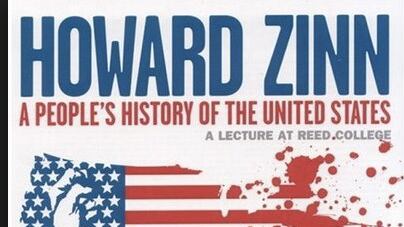David Greenberg says some not so nice, but oh so important, things about Howard Zinn's contributions to academia and broader American intellectual life:
[T]he fatal flaw of Zinn’s historical work is the shallowness, indeed the fallaciousness, of his critique of scholarly detachment. Zinn rests satisfied with what strikes him as the scandalous revelation that claims of objectivity often mask ideological predilections. Imagine! And on the basis of this sophomoric insight, he renounces the ideals of objectivity and empirical responsibility, and makes the dubious leap to the notion that a historian need only lay his ideological cards on the table and tell whatever history he chooses. He aligns himself with the famous line from the British historian James Anthony Froude, who asked rhetorically if history “was like a child’s box of letters, with which we can spell any word we please. We have only to pick out such letters as we want, arrange them as we like, and say nothing about those which do not suit our purpose.” Froude made this observation in the middle of the nineteenth century. ...
[I]t is distressingly easy today to find tendentious scholarship that exhibits a Zinn-like habit of judging historical acts and actors by their contemporary utility. As much as radical history contributed invaluable new arguments and perspectives to historical scholarship, it has also left an unhappy legacy of confusing or commingling political and scholarly goals. At its most egregious, this confusion takes the form of polemical potboilers such as Zinn’s or, worse, propagandistic screeds such as Peter Kuznick’s and Oliver Stone’s The Untold History of the United States. (Three decades after Zinn, five decades after William Appleman Williams, it takes chutzpah to claim that a conspiracy-laden tale about America’s unremitting malice has somehow been “untold,” but then one wouldn’t expect Stone’s history to be any more subtle than his movies.) ...
In writing as or about radicals, historians owe it to their readers to include the bad with the good, the ignoble with the noble—not in the service of “balance” but in the pursuit of intellectual honesty. The most regrettable aspect of Howard Zinn’s full and lusty life is not that he chose to ignore this responsibility. It is that he never seemed aware of it in the first place.






